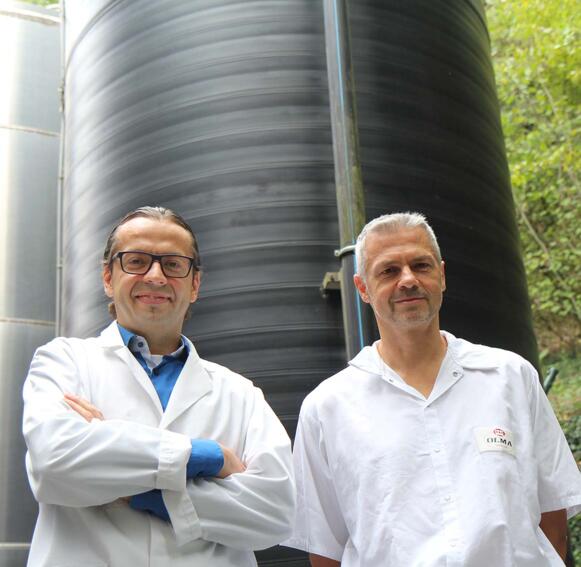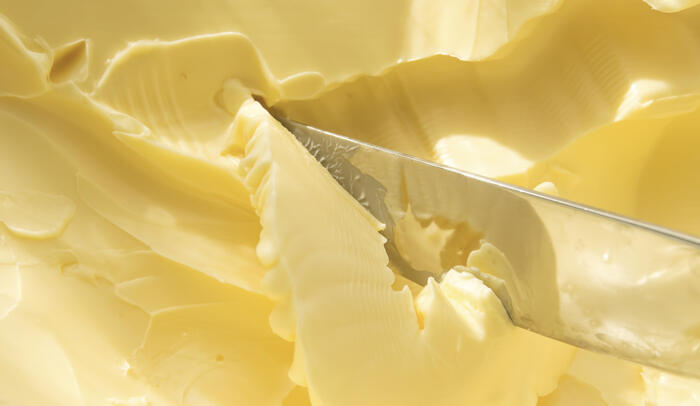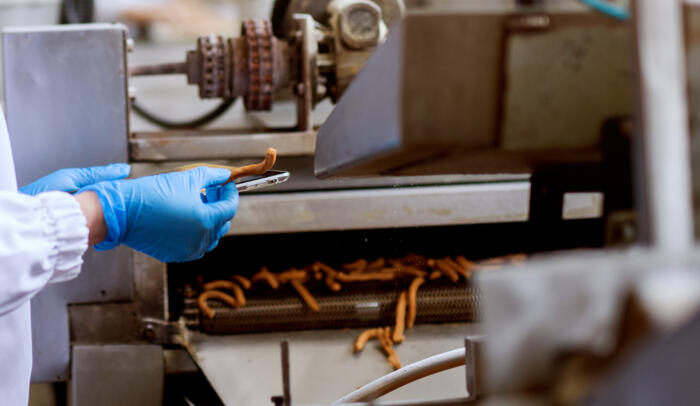How ready-to-use salt brine helped automate margarine producer Aigremont
Oils and fats are products with a narrow profit margin, so manufacturers can only maintain their market position by automating. Margarine and fats producer Aigremont recently carried out a comprehensive optimisation of its production processes. As a result, salt, an essential ingredient in margarine, was replaced by salt brine - a decision that was quickly extended to their water softeners. "The added value of salt brine is unrivalled", claims the margarine factory.

As such, the cost of adding the salt to the margarine was disproportionate to the cost of the raw material itself. The only way to automate the process was to use salt brine.
Who is Aigremont?
The company Aigremont, based in Awirs (Belgium), has been specialised in the production of margarines, fats and oils since 1934. Their range now includes more than 150 formulas and around 450 products. Aigremont's most important market is the food industry, but the family business also supplies the hotel and catering industry, wholesalers (such as bakeries) and retail. Last year, Aigremont achieved turnover of around €47 million, and had 73 employees. 30% of this revenue was generated domestically, with the rest coming from sales in neighbouring countries.

Automisation thanks to ready-to-use salt brine
"We used to buy salt in bags for our margarines," explains Marketing and Communication Manager Frédéric Delooz. "Since we only needed small quantities of salt, automatic dosing was not an option. As such, the cost of adding the salt to the margarine was disproportionate to the cost of the raw material itself. The only way to automate the process was to use salt brine. And this turned out to be the ideal solution, as margarines need to contain an average of 20% water in any case. At first, we considered using a machine to process bulk salt into brine ourselves, but that turned out to be too complex and labour-intensive," continues Delooz.
Finally, Aigremont decided to use the ready-to-use salt brine from ZOUTMAN, where the brine is delivered ready-to-use on site. The brine is stored in a tank and is immediately available to be automatically added to the production process.
The quest for the perfect supplier
In their search for a reliable brine supplier, Aigremont found that the offering in Belgium was very limited. "Buying salt brine abroad was not an option due to the high transport costs," explains Production Manager Nicolas Henrard. "Fortunately, we came across ZOUTMAN, a supplier with an excellent reputation. We didn't hesitate to work together with this company. And ZOUTMAN more than met our high expectations. They always deliver within three days, and we then have enough supplies for a further two weeks. In addition, the salt concentration of the supplied brine is always 23%. So we don't have to worry about discrepancies in flavour".
"But perhaps the most important thing is that you're more than just a number for ZOUTMAN," explains Henrard. "Someone passes by on a regular basis to check if everything is satisfactory, and to see if anything can be optimised. ZOUTMAN is continually looking for ways to remove hassles for their customers. For example, we are currently looking at the possibility of making the switch to their latest innovation, where we automatically receive a notification via an internet platform if our brine tank needs to be refilled". Karel Gits, Sales Manager at ZOUTMAN, explains: "Via a pressure probe, both we and the customer keep an eye on the level of the brine. If it falls below a critical level, the customer automatically receives a notification to order additional brine. That way, there is no chance that the brine will ever run out.
But perhaps the most important thing is that you're more than just a number for ZOUTMAN.
Salt brine: also for water softening
Just such a system would be interesting for Aigremont, because the company currently uses fairly large volumes of brine: around 60 tons per month. Not only is this product an essential ingredient for the margarines, it also ensures flawless operation of the water softeners.
"We have the luxury of being able to use spring water," says Nicolas Henrard. "Unfortunately this contains a lot of chalk, so we have to soften the water first. We used to fill our water softeners with salt several times a week to regenerate them, which was a time-consuming and physically demanding task. The worker had to pour several 25 kilogram bags into the softeners each time. Moreover, the salt consumption in these applications is difficult to predict, so you had to check the level regularly. On ZOUTMAN's advice, we switched to salt brine fairly quickly after we started using this ingredient in our margarines. The brine is supplied via the same pipe and it is also automated, so we no longer have to think about refilling. In addition, there is no more waste, pallet management is eliminated, and we save a lot of labour time.
Saving precious space
In addition to automation, labour savings and consistent quality, using brine has had another advantage for Aigremont. With an annual growth rate of around 5%, the production facility is bulging at its seams, and every square centimetre needs to be optimised. "The brine is stored in a polypropylene tank outside, as there is little chance that the mixture will freeze in our region", says Henrard. "However, bulk salt needs to be stored indoors to avoid moisture damage. And we won't have the space for that until we start our extension works. But even after that, we won't be switching back to pure salt. The brine, and our supplier ZOUTMAN, provide too much added value in that respect, and we don't want that to change.
The production process for margarines
The production process for margarines is straightforward. The fat is produced in just three steps.
- Step 1: The brine, the ingredients and the extra water are mixed in one vat, and the fats in another.
- Step 2: The contents of both vats are mixed together and crystallised (cold process) until the right texture is obtained (depending on the packaging).
- Step 3: The margarine is dosed and packaged.

